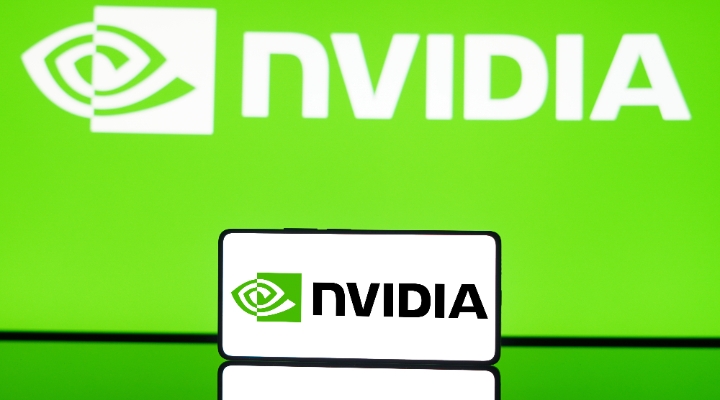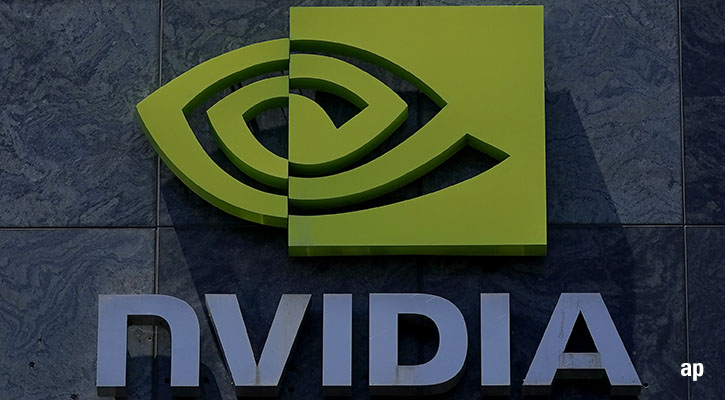
All eyes are on Nvidia NVDA stock as investors await its second-quarter earnings report on Wednesday, August 28. The company has consistently exceeded expectations, but strategists warn of widespread effects on the stock market if investors are disappointed.
Nvidia's financial results have loomed large thanks to the role of the company's semiconductor chips in developing artificial intelligence technology. The firm has consistently delivered blowout results and outperformed analyst estimates and lofty investor expectations, sending its stock soaring.
This time, Morningstar technology equity strategist Brian Colello is confident the chipmaker's momentum will continue.
"I’d be stunned if they fell short of their guidance for the July quarter and/or didn't increase it for the October quarter," he says.
But in the unlikely event that investors are disappointed with the company's results, he warns that the ramifications would be far-reaching: "It's fair to say that if Nvidia's stock were to fall for whatever reason, it'd take down all AI-related names with it."
Because mega-cap AI companies are weighted so heavily in the major indexes, a stumble by Nvidia could potentially ripple through the broader market.
Here's everything investors need to know ahead of Nvidia's earnings.
Key Morningstar Metrics for Nvidia Stock
• Fair Value Estimate: $105.00 (CAD $139.88)
• Morningstar Rating: ★★★
• Morningstar Economic Moat Rating: Wide
• Morningstar Uncertainty Rating: Very High
Nvidia Stock's Wild Ride
Shares of Nvidia are up 157% this year and 194% over the past 12 months. The stock fell at the beginning of August amid a market selloff sparked by concerns about economic growth and the strengthening of the Japanese yen, but it has nearly recovered all those losses. Shares are up more than 9% over the past week. The stock now trades at around $128 per share, and Colello considers it fairly valued.
Overall, analysts remain bullish. Nvidia raked in $26 billion in revenue in the first fiscal quarter ending in April 2024. They expect the company to exceed its revenue guidance of roughly $28 billion in the July quarter, according to FactSet's consensus estimates.
"Like in the past several quarters, we think Nvidia will report results exceeding guidance while projecting even higher revenue in the October quarter," Colello writes. He points to continued spending by cloud computing firms like Microsoft (MSFT), Meta Platforms (META), and Amazon (AMZN) on AI infrastructure. He adds that Nvidia should be able to increase revenue even further as constraints from its suppliers ease over the next few quarters.
Meanwhile, analysts at Goldman Sachs predict "another strong double-digit revenue and earnings growth year for Nvidia," while Bank of America analysts characterize the stock’s recent volatility as a buying opportunity rather than a cause for concern over the long run.
"This company has been beyond phenomenal," says Steve Sosnick, chief strategist at Interactive Brokers.
"I cannot think of a company that has so consistently beaten expectations, raised expectations, and then turned around the next quarter, beaten those expectations, and then raised them again. It’s unprecedented." But at the same time, he adds, "it's hard to imagine the streak continuing forever."
Can Nvidia Stock Keep Soaring?
For Colello, the bigger question surrounding Nvidia stock is the durability of AI spending over the long term. For now, he writes, "both Alphabet (GOOGL/GOOG) and Meta have conceded that it is far riskier to underinvest in AI than overinvest." While that may bode well for the stock in the near term, "it increases the risk that there will be a crash in investment at some point once they secure adequate AI GPU supply."
Sosnick agrees: "the question that we have to wrestle with is whether the AI adoption cycle can continue at this pace." The market's August selloff was a sign that investors are already beginning to question the durability of the trade. Tech names stumbled while value stocks and small-caps surged.
"We've seen the AI trade roll off a bit in the past month versus the broader market, as I think the market has proper concerns about the longevity of spending," Colello says.
Risks to Index Fund Investors
Strategists say it's not just AI companies that could struggle if Nvidia disappoints. "There are knock-on effects," Sosnick says.
So far this year, Nvidia alone has been responsible for 4.12 percentage points (roughly a quarter) of the Morningstar US Market Index's 17.2% return, according to data from Morningstar Direct.
Sosnick explains that an investor in an S&P 500 index fund might assume that they own a diverse basket of stocks, but eight of the most heavily weighted AI firms (Nvidia, Amazon, Apple [AAPL], Microsoft, Meta, Tesla [TSLA], Alphabet, and Broadcom [AVGO]) now account for roughly one-third of the weight of that fund. Despite some signs that the market's gains have broadened beyond big tech, "the concentration risk is nowhere close to gone," he says.
That means that if the AI trade falters on less-than-stellar earnings from Nvidia, investors could feel the impact across their entire portfolio. “Nvidia occupies such a privileged space in investors' mindsets," Sosnick says. If the company were to spark investor concerns that the AI trade was slowing, "that could have very strong ramifications."




















